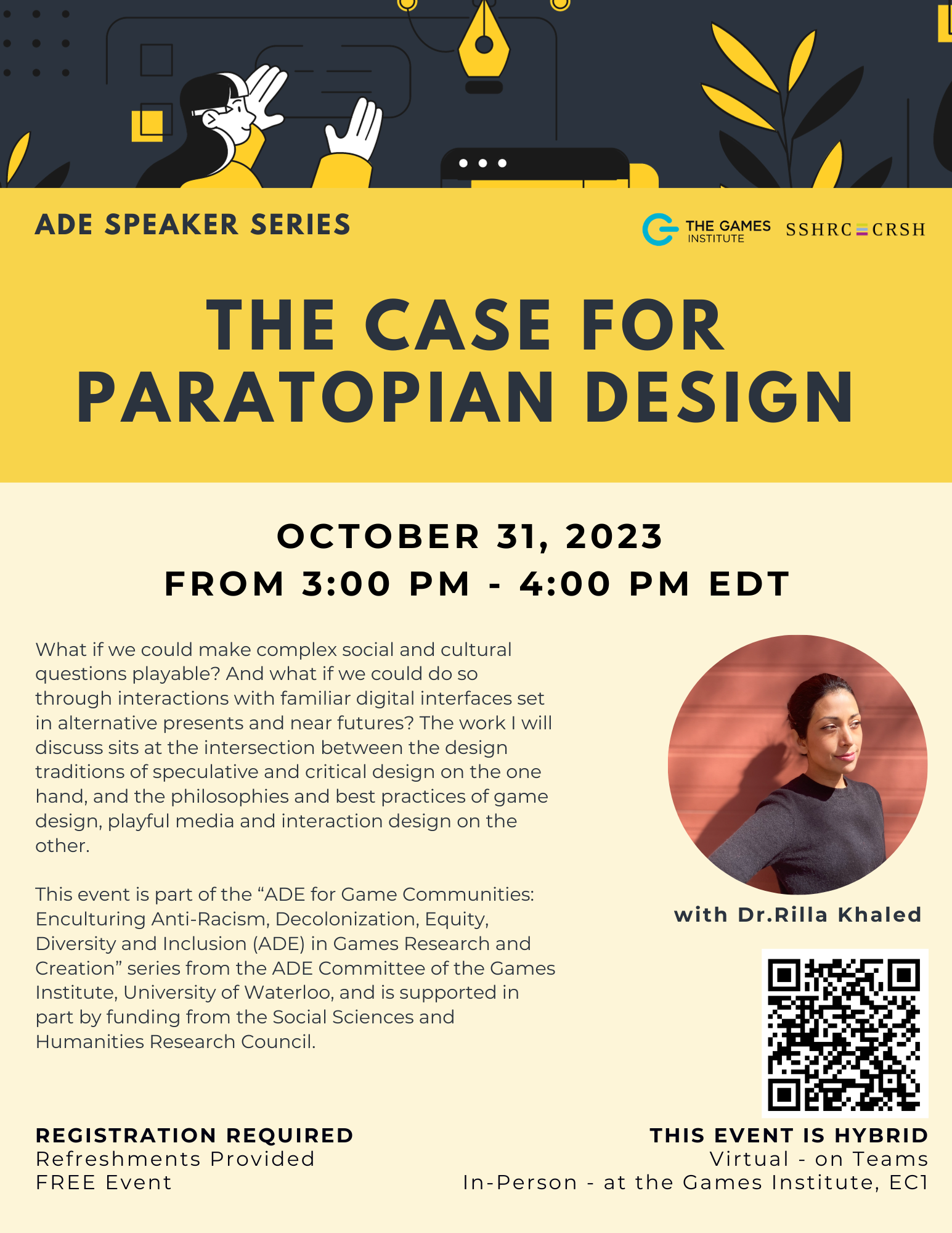
What if we could make complex social and cultural questions playable? And what if we could do so through interactions with familiar digital interfaces set in alternative presents and near futures? The work I will discuss sits at the intersection between the design traditions of speculative and critical design on the one hand, and the philosophies and best practices of game design, playful media and interaction design on the other. It turns out, though, that an arranged marriage between these traditions produces unusual offspring. In this talk, grounded in examples including outsourcing religious tolerance to technological solutions, Indigenous Hawaiians undertaking space travel, matrimonial websites from the near future, and flirtatious AI chatbot therapists, I make the case for paratopian design, which is neither utopian nor dystopian, but proposes paradigm shifts that invite us to reconceptualise and reconsider the building blocks of "here" & "now".
This event is part of the “ADE for Game Communities: Enculturing Anti-Racism, Decolonization, Equity, Diversity and Inclusion (ADE) in Games Research and Creation” series from the ADE Committee of the Games Institute, University of Waterloo, and is supported in part by funding from the Social Sciences and Humanities Research Council.
This event will be held in HYBRID format. Please join us in-person at the Games Institute, EC1 at the University of Waterloo or virtually thorugh Microsoft Teams.
Speaker Bio:
Dr. Rilla Khaled is an Associate Professor of Design and Computation Arts at Concordia University in Montréal. She directs the Technoculture, Art and Games (TAG) Research Centre. Her work focuses on how playful media can improve daily life, and spans designing award-winning games, creating speculative prototypes of near-future technologies, working with BIPOC communities to materialise inclusive futures, establishing foundations for recoverable, materials-based game design research, and articulating boundaries for experimental uses of AI.